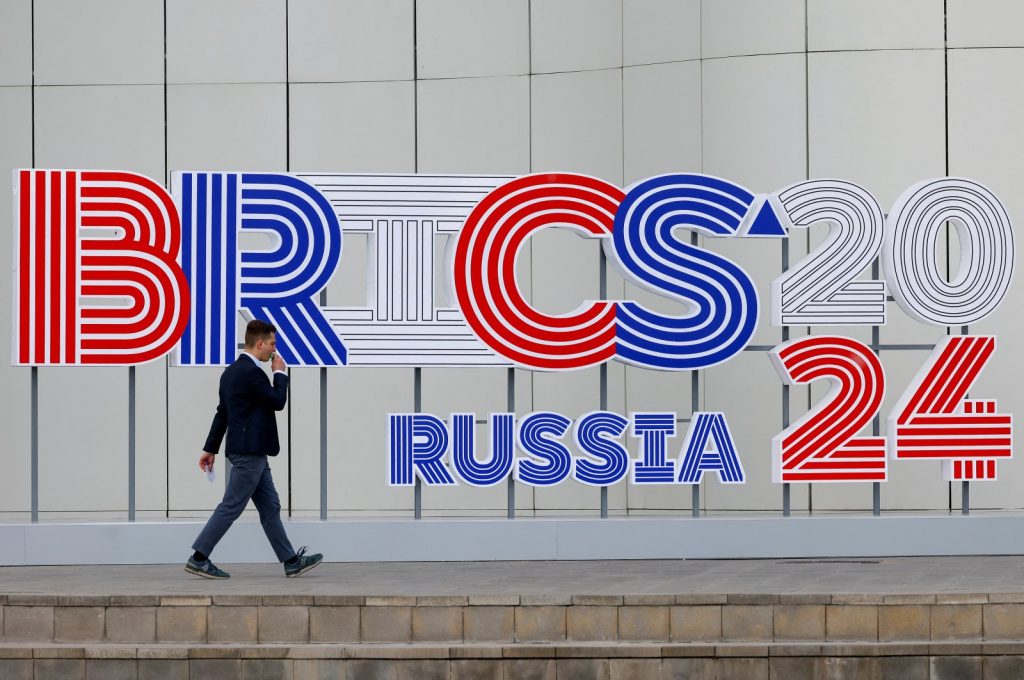Foreign Minister Hakan Fidan’s recent remarks on Türkiye’s possibility to join the BRICS group have sparked yet again debates on Ankara “turning away” from the West. However, the statement should not cast doubt about Ankara’s commitment to the Euro-Atlantic alliance; rather, it should be read as another initiative to diversify its foreign policy further.
During a recent visit to China, Fidan, at a talk at the Center for China and Globalization, said, “We would like to, of course. Why would we not?” when asked about possible membership.
This is not the first time Türkiye has voiced interest in participation as an observer state or dialogue partner in international platforms. Indeed, especially in the past two decades, Ankara has been trying to diversify and reinforce its presence among the international community after following a mainly Western-oriented foreign policy.
In 2022, President Recep Tayyip Erdoğan suggested Türkiye would seek full membership of the Russia and China-led Shanghai Cooperation Organisation (SCO). No progress has been made here yet.
In 2021, Türkiye led an initiative to revitalize its ties with the Turkic Central Asian nations, with which Ankara has significant historical and cultural ties but with whom relations could not be developed due to Ankara’s disinterest in the region in the past. That year, the name of the Cooperation Council of Turkic Speaking States (Turkic Council) was changed to the Organization of Turkic States along with a declaration that aimed to guide future cooperation in various fields where the Turkic states have common interests and offer a common voice in the international arena.
Again, Ankara has adopted an enhanced role in the Arab League, the Organisation of Islamic Cooperation (OIC) and the United Nations. The latest example is the formation of a Gaza contact group that visited several countries to rally support for Palestine.
Furthermore, it was not Fidan’s words that displayed Türkiye’s interest in BRICS – a group comprising Brazil, Russia, India, China, South Africa, Ethiopia, Iran, Egypt and the United Arab Emirates – for the first time. Attending a BRICS summit as part of Ankara’s first-ever high-level contact with the group in South Africa in 2018, Erdoğan said that Türkiye was interested in membership and a name such as BRICST was even suggested at that time.
All these initiatives to diversify policies and be a voice in as many platforms as possible are a strategy to increase dialogue, cooperation, solutions and alternatives to the Western-dominated rule in economics and politics and strengthen Türkiye’s role as a rising middle power on the international stage.
Ankara voicing interest or actually joining such groups is nothing more than a pragmatic approach and does not mean that the country is on the way to becoming a satellite of Russia, China or any other actor. Türkiye’s steps in its foreign and security policy in recent years have excessively proven that the country does not shy away from taking unilateral action and following the policies it finds right when necessary. Türkiye being a NATO member or EU candidate has not prevented it from launching several operations in Syria or Iraq against terrorism despite its allies’ warnings. Similarly, it has not prevented Türkiye from continuing close ties with Russia despite the war. The same will apply when or if Ankara joins any China/Russia-dominated grouping.
Since Türkiye sees an increased role for itself in the international arena and is a voice advocating change and balance in the Western-dominated order, it has also often called for a reorganization of the U.N. Security Council. Thus, with an interest in alternative groups and platforms, Ankara can be expected to pursue its goals, mediation efforts and economic cooperation with as many actors as possible in the future.


